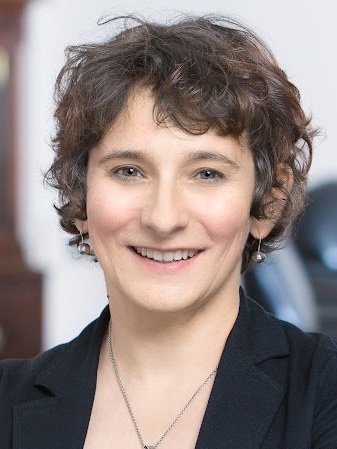Our weekly SRI Seminar Series welcomes Marion Fourcade, a professor of sociology at UC Berkeley and director of Social Science Matrix. Fourcade is interested in the sociology of economic and political knowledge and practice across nations. Her first book, Economists and Societies (2009), explored the distinctive character of the discipline and profession of economics in three countries. A second forthcoming book, The Ordinal Society, will investigate new forms of social stratification and morality in the digital economy. Fourcade’s other recent research focuses on algorithmic societies, the digitization of states and digital capitalism, the comparative study of political organization, and the sociology of economics.
In this talk based on ongoing work with Kieran Healy, Fourcade explores the social implications of algorithmic optimization throughout contemporary institutions and landscapes. Across a variety of contexts—including education, medicine, markets, and government—Fourcade observes that the application of datasets yield new forms of social organization that are oriented towards and justified by practices of measurement.
Talk title:
“Rationalized stratification”
Abstract:
The pairing of massive datasets with processes—or “algorithms”—written in computer code to sort through, organize, extract, or “mine” them has made inroads in almost every major social institution. Today, techniques of mathematical optimization are routinely implemented across domains as varied as education, medicine, credit, insurance, criminal justice, and the public sphere, in an effort to streamline and automatize processes of risk prediction, resource allocation, communication, and decision-making. These techniques are reorganizing markets, the state, and society at large. In the sphere of the market, they create new classifications and forms of capital that structure people’s life chances. In the sphere of the state, they transform the conditions of citizenship and political identification. And, for society as a whole, they advance new forms of social organization, oriented toward and justified by measurement.
About Marion Fourcade
Marion Fourcade is a professor of sociology and director of Social Science Matrix at UC Berkeley. She received her PhD from Harvard University in 2000, and is an alumnus of the Ecole Normale Supérieure in Paris, France. A comparative sociologist by training and taste, she is the author of Economists and Societies: Discipline and Profession in the United States, Britain and France, 1890s to 1990s (Princeton University Press, 2009). Other published works explore national variations in neoliberal transitions, political mores, and valuation cultures. More recently, her research focus has shifted to the rise, consolidation and social consequences of new classificatory regimes powered by digital data and algorithms. A book on this topic, The Ordinal Society (with Kieran Healy), is under contract with Harvard University Press. Fourcade is a recipient of the American Sociological Association's Distinguished Book Award and the Society for the Social Studies of Science's Ludwik Fleck prize for outstanding book in the area of science and technology studies, as well as of the Lewis Coser award for theoretical agenda setting.
About the SRI Seminar Series
The SRI Seminar Series brings together the Schwartz Reisman community and beyond for a robust exchange of ideas that advance scholarship at the intersection of technology and society. Seminars are led by a leading or emerging scholar and feature extensive discussion.
Each week, a featured speaker will present for 45 minutes, followed by 45 minutes of discussion. Registered attendees will be emailed a Zoom link approximately one hour before the event begins. The event will be recorded and posted online.
Marion Fourcade


